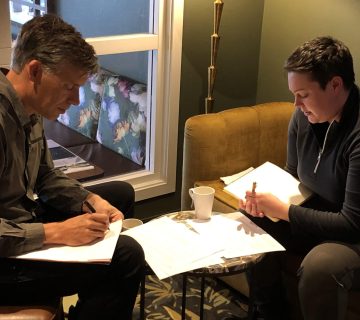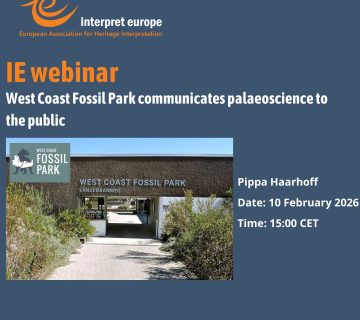If you become familiar with just one German word, let it be ‘Bildung’. This concept might encourage thinking about our interpretive profession.
In ‘Interpreting our heritage’, Freeman Tilden suggests that interpretation is an educational activity. In the German edition, ‘education’ is translated as ‘Bildung’ [ˈbɪldʊŋ], a word that doesn’t exist as a single English term. It reaches beyond what is broadly understood as ‘education’.
The concept of ‘Bildung’ is rooted in the early German term for imagination, and it is related to the word ‘Bildnis’ (sculpture). To gain ‘Bildung’ suggests growing one’s own personality towards the goal of becoming a mature and responsible individual.
Since the Enlightenment, philosophers like Kant, Hegel and Gadamer had this concept in mind when they discussed what it meant to interpret. In the early 19th century – the era of Idealism, Romanticism and New Humanism – the Humboldt brothers, especially, favoured the idea of lifelong learning to become autonomous world citizens (Weltbürger), an idea that became known as ‘humboldtsches Bildungsideal’.
New Humanism was based on Ancient Greek and Renaissance philosophy and was discussed in several European regions. Hence, it might also be worth comparing ‘Bildung’ to words used in other European languages, e.g. bildning, dannelse, formación/formation/formazione, paideia (παιδεία), or sivistys. Of course, a 500-word newsletter article doesn’t allow us to elaborate on this – but it would be great if it could trigger some exchange on this subject.
However, what makes the concept of ‘Bildung’ so exciting is not only its history but that it corresponds to IE’s recent debate on the transformation of the interpretive profession. In that context, one question was how individuals can be more encouraged to interpret on their own and to get into an exchange about their multiple interpretations, instead of seeing one’s role mainly in communicating the interpretation of ‘the experts’ to people.
While this is sometimes considered new, it could also be seen as a step back to the roots: John Muir saw the purpose of interpretation in getting as near to the heart of the world as one can. He clearly understood interpretation as a self-educational activity and might have been rather irritated to see it described as professional communication of pre-designed messages. Getting the result of an interpretation across is different from encouraging and facilitating an interpretive process. Obviously, the latter requires not only different knowledge and skills but also a different idea of learning around heritage sites – close to the idea of ‘Bildung’?
While it is widely recognised that considering different values is crucial for the future of Europe, formal learning at schools and universities is much tailored to learning objectives that help to secure employability. There are reasons for this, but isn’t competitive market-based thinking unsustainable and needs a gentle corrective, if it shall not lead to new global conflicts? By sharing different interpretations of heritage, and by encouraging people to learn through them, heritage interpretation might become a promising approach to provide this corrective.
Considering ‘Bildung’ as the purpose of heritage interpretation could help inspire people to encounter the challenges of our time as engaged world citizens. It would be great to hear about more concepts that might help to foster such development.
Thorsten Ludwig is an IE Certified Interpretive Trainer as well as a planner and consultant based in Germany. He has run his own company, Bildungswerk interpretation, since 1993. You can contact him at: ludwig@interp.de.
To cite this article: Ludwig, Thorsten (2021) ‘Ludwig Bildung and other intentions of learning’. In Interpret Europe Newsletter 2-2021, 4.
Available online: https://interpret-europe.net/wp-content/uploads/2021/06/Newsletter-Summer-2021.pdf




